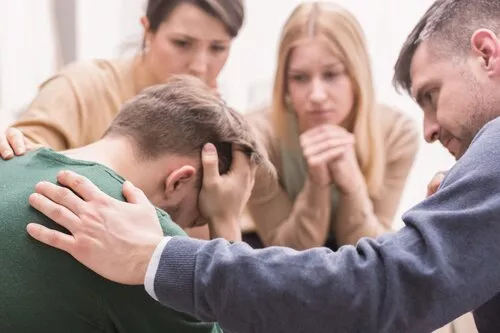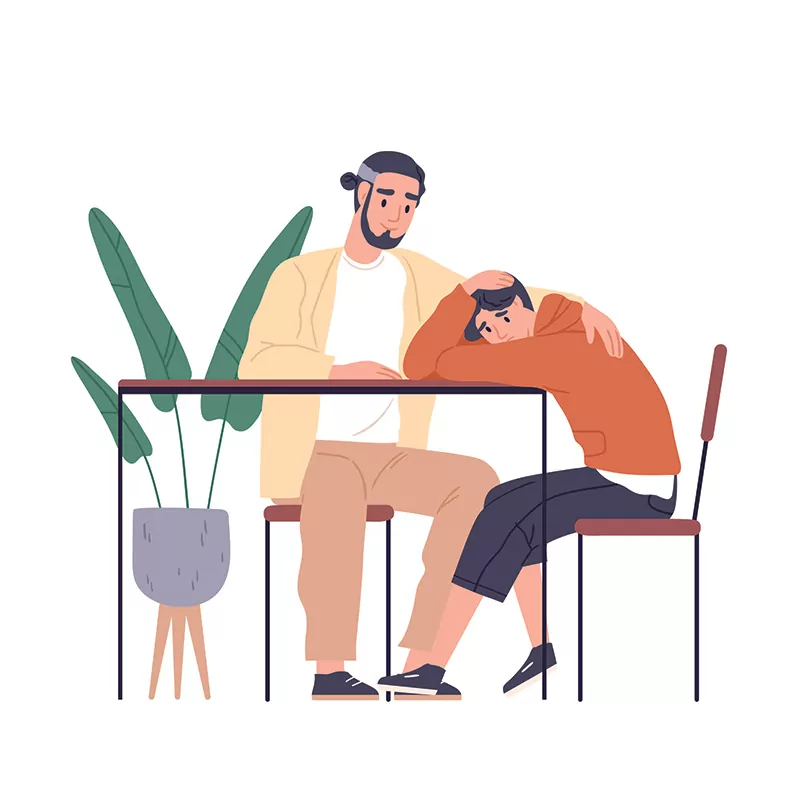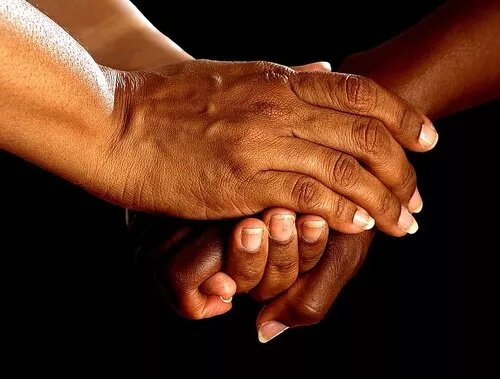Alcohol addiction impacts millions of people, as well as the people closest to them. It affects all types of families, no matter their background, race, or circumstances. Witnessing a loved one struggle with alcohol addiction can be stressful. It can be confusing or difficult to know how to help them with their struggle, especially if you are unsure when or how to start. Here are some steps you can take to get alcohol addiction help for your family.
Alcohol addiction is often referred to as a “family disease” because it strongly affects the spouse, siblings, children, and parents of the person with the addiction. Family members are grappling with mixed emotions–loving the person with addiction but hating the effect that the addiction has on the person.
Living in a home where alcohol addiction is present can feel very tense, stressful, and chaotic. While you may feel like you are to blame for your family member’s alcohol addiction, remember, it is not your fault. Addiction is a disease and you alone are not responsible for causing it or making it stop.
Whether or not your loved one is in treatment for their addiction, don’t wait to start the healing process for yourself and others in the family. There are special groups, designed specifically for families living with alcohol addiction, that connect you with other families in the same situation and facing similar struggles. Together, you learn how to best support your loved one throughout their recovery and how to cope with your emotions related to the addiction.
As much as you want your family member’s addiction to stop, ultimately, it’s up to the person with alcohol addiction to seek treatment. But your actions can help break down the walls that addiction builds. Here are some approaches to take with your family member that can put them on a better path:
Try to love them unconditionally, and point your hurt and anger at the illness rather than at the person
Have an open and honest conversation with them about how they use alcohol
Share with them how their drinking has impacted the rest of the family
Encourage and support positive behavior changes
Hold them accountable for their actions
Never excuse aggressive or violent behavior
Explore treatment options that provide family support
Remind your loved one that recovery is a lifelong journey that you are here to support
There are many types of treatment programs and supportive resources available, depending on your loved one’s specific needs. Once your family member is in treatment for their alcohol addiction, some treatment programs offer family therapy, which can help you rebuild trust, communication, and stability. Some programs even provide community-based resources for families to help with any needs related to housing, employment, childcare, healthcare, and legal services.
We are here to help you better understand your loved one and support them. Check out our eBook, “How to Help a Loved One Struggling with Substance Use Disorder,” for information on addiction and how to best help someone experiencing it while still caring for your own mental health.
If you need help with your substance use disorder, we are here to help you build your confidence and momentum towards the future you want. We provide treatment services for adults with alcohol, opioid, and other substance use disorders. We are currently located in Florida, Louisiana, Massachusetts, North Carolina, New Jersey, Ohio, Texas, and Washington.
 Alcoholism: A Family Disease
Alcoholism: A Family Disease
 How to Talk to Your Child About Addiction: A Comprehensive Guide
How to Talk to Your Child About Addiction: A Comprehensive Guide
 How To Help Someone Through Drug or Alcohol Withdrawal
How To Help Someone Through Drug or Alcohol Withdrawal